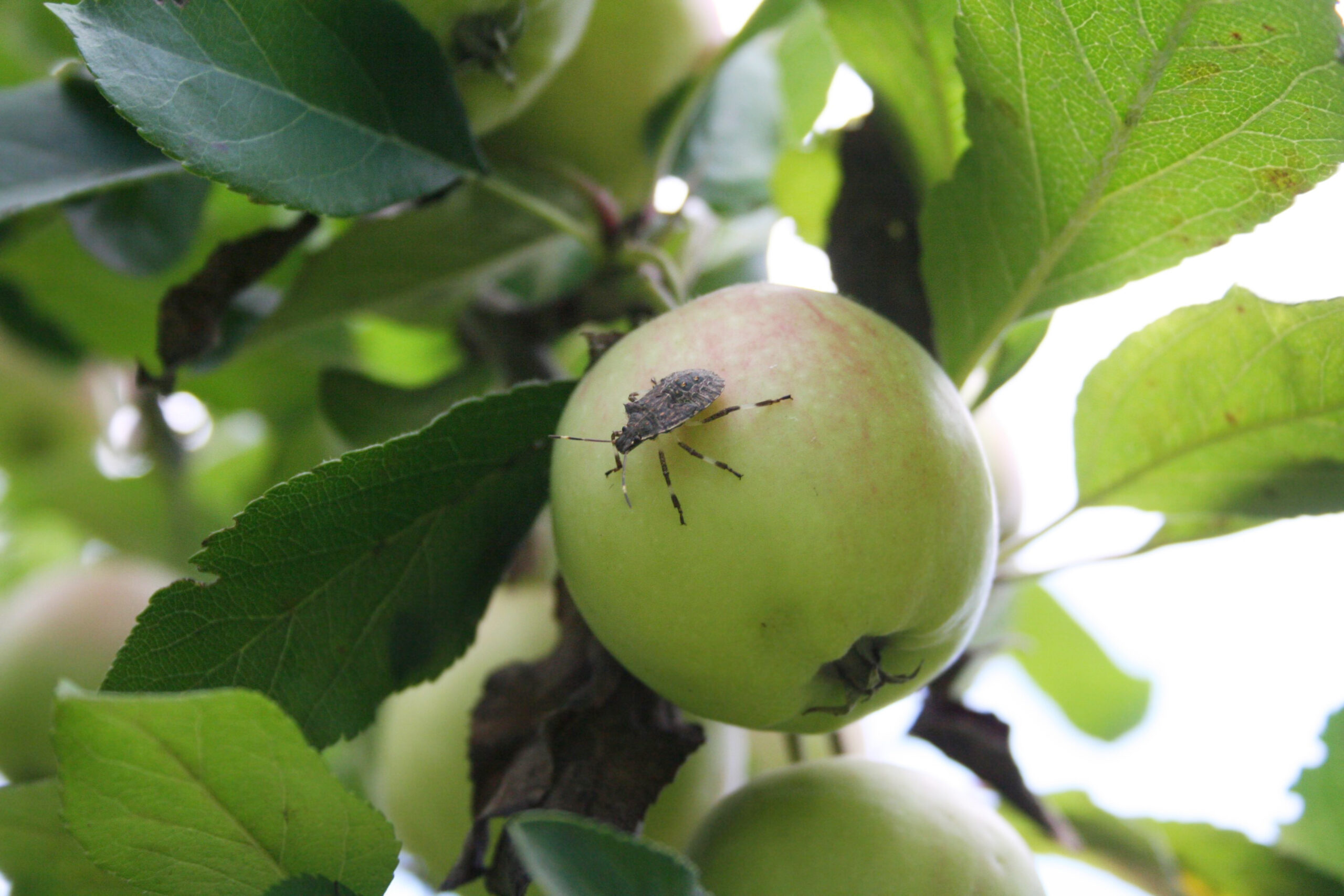D’marmoréiert Bamwanz ass en invasiivt Insekt aus Asien wat de Wënzer, Uebst- a Geméisgäertner vill Kappzerbrieches mécht. Dës Käffere kënnen effektiv ganz grouss Schied an de Wéngerten, Bongerten oder Geméisgäert uriichten. D’DP-Deputéiert André Bauler a Gusty Graas hu bei den zoustänneg Ministeren nogefrot, ob dës Käfferen sech och schonn zu Lëtzebuerg breet gemaach hunn an ob scho Schied an de Kulture constatéiert goufen.
« La punaise diabolique, ou punaise marbrée (Halyomorpha halys), est une espèce d’insectes envahissante originaire d’Asie de l’est. Observée en Europe depuis 2007, elle est présente en France depuis 2012, notamment en Alsace, mais aussi en Allemagne, Suisse, Italie, Autriche, Hongrie et Grèce.
La punaise diabolique est un problème pour plusieurs espèces cultivées. Elle peut causer des dommages importants à de nombreuses cultures de fruits et de légumes. Ces dommages peuvent non seulement affecter l’apparence des fruits et légumes, mais aussi affecter la production en causant leur avortement prématuré, ce qui nuit à leur mise sur le marché.
En France, l’Agence nationale de sécurité sanitaire de l’alimentation, de l’environnement et du travail (ANSES) lui a consacré en 2014 une analyse de risques montrant que cette espèce peut significativement nuire à l’arboriculture, à la viticulture, au maraîchage et à d’autres cultures. De plus, l’Institut national de la recherche agronomique (INRA) a lancé un appel à vigilance via une application dénommée « AGIIR » pour que les citoyens puissent signaler sa présence.
Dans ce contexte, nous aimerions poser les questions suivantes à Madame la Ministre de l’Environnement, du Climat et du Développement durable et à Monsieur le Ministre de l’Agriculture, de la Viticulture et du Développement rural :
- Est-ce que la présence de la punaise diabolique a déjà été confirmée au Luxembourg ?
- Dans l’affirmative, quelles cultures étaient affectées ?
- Que peut-on faire pour lutter contre cette espèce envahissante ?
Est-ce qu’une mise en place d’une application pour signaler la présence de cet insecte comme en France pourrait être envisagée ? »






